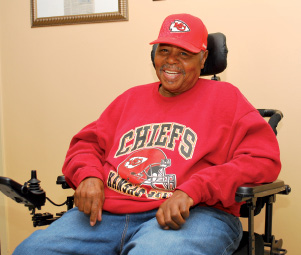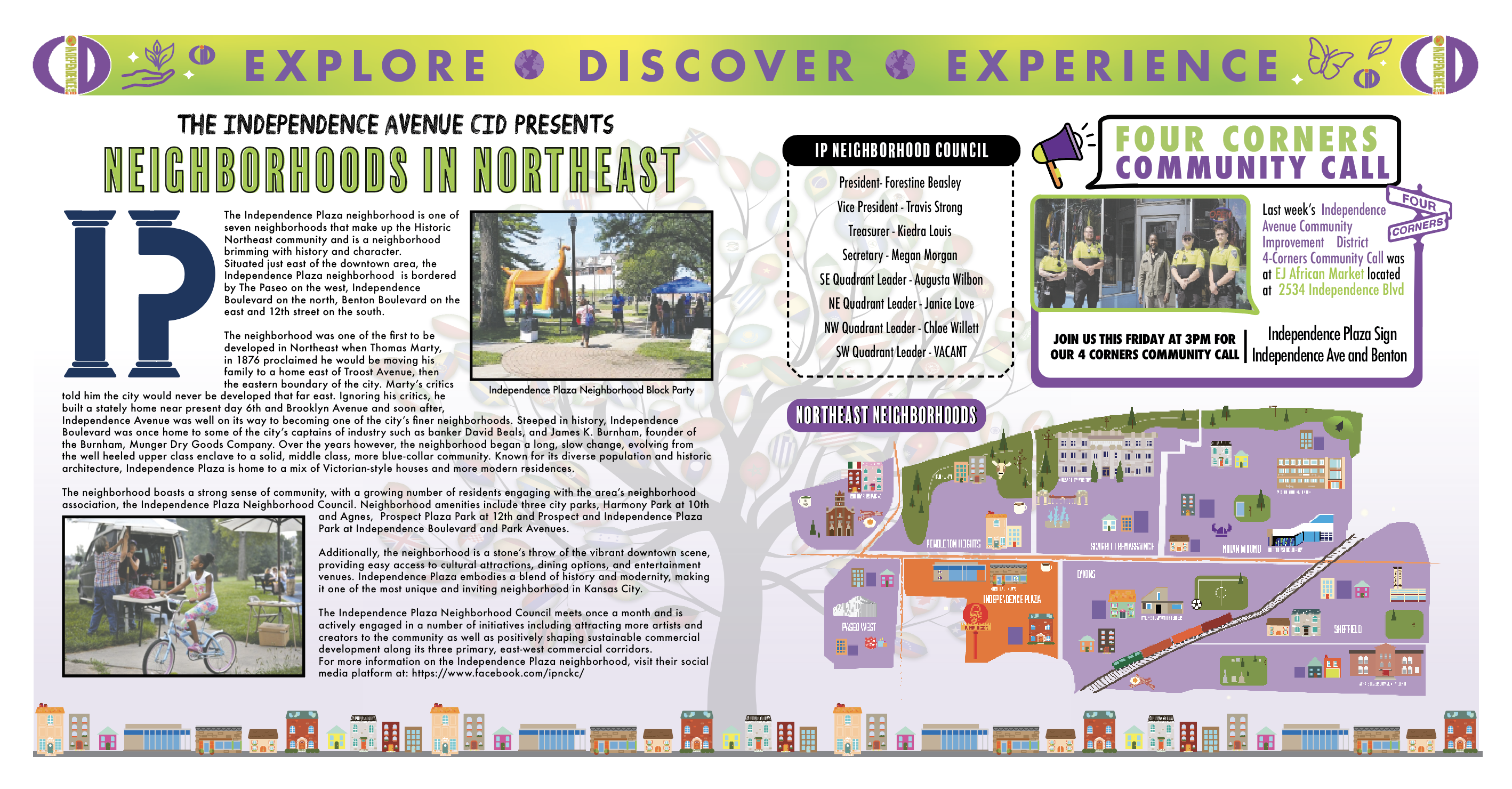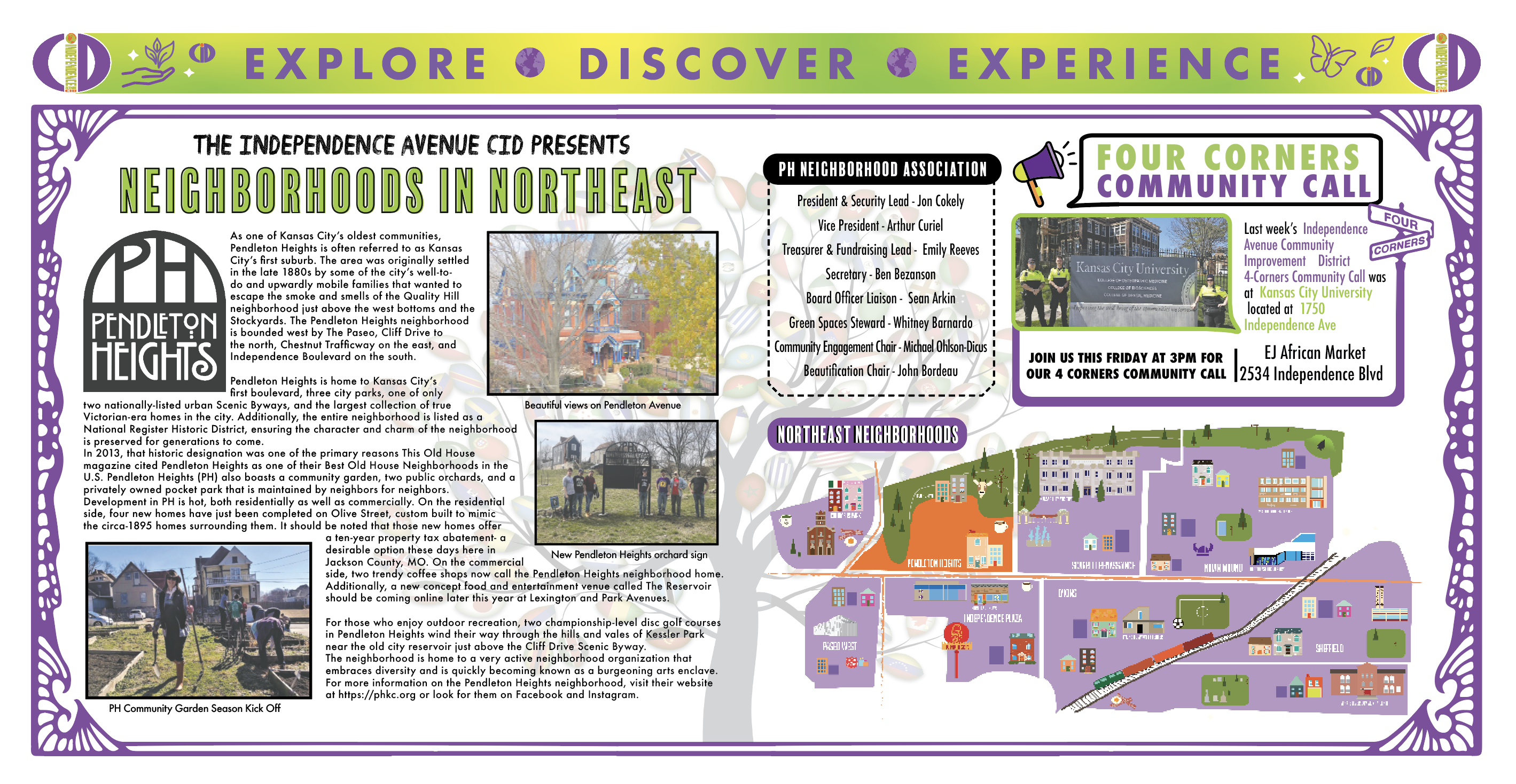
By LESLIE COLLINS
Northeast News
December 5, 2012
When Curtis Baskin arrived in Kansas City, Mo., it was immediate culture shock.
“I’d never seen so many bright lights in my life,” Baskin, now 68, said. “So many people were out the whole night. I said, ‘Do these people ever go to bed?'”
But, Baskin soon adapted to the city known as the Paris of the Plains, falling in love with the people and the city life. What began as a two-week vacation turned into his newfound home, where he’s lived now for nearly 50 years.
Baskin grew up on a country farm near Houston, Miss., where his family tended to the garden and raised cows, hogs, mules, horses, chickens and cotton.
His father began as a cotton sharecropper and saved up enough money to purchase a 250-acre farm from a family member for $20,000.
“When we first started out, we didn’t have tractors, so we were farming with mules,” he said. “It was really nice growing up in the country. There was 11 of us – six boys and five girls. We were kind of far apart from other people, but there were so many of us we could play among ourselves.”
Every morning before school, Baskin arose at 6 a.m. to feed the hogs and milk the cows by hand. During the winter months, he helped gather firewood for the coal and wood heater. It wasn’t until his teens that his family upgraded to an electric stove and gas heater.
“It was a good life. We had three meals a day and raised most of our food,” he said. “We never did go hungry. Some people were not as fortunate as we were.”
Baskin said his journey to Kansas City began when the chair factory he and his friend worked for shut down for two weeks. His friend’s family lived in Kansas City and Baskin had family in Chicago, Ill., so they planned to vacation in both places.
“We spent all of our money in Kansas City, so it was as far as we could get,” he said. “I started to like Kansas City, so I decided I wouldn’t go back.”
Baskin found a job at an insurance company as a mail room sorter and also landed a job across the street as a fry cook at Nichols Lunch. During the interview, he fudged his skills and said he knew how to cook.
“I didn’t know how to cook,” he said. “I most certainly was nervous, but at the time I was broke and I was willing to take the chance.”
During his first week, he caught on quickly and stayed at Nichols Lunch for three years.
At the insurance company, he worked his way up to mail room supervisor and worked there for about 20 years.
“I told my wife I was going to just take it easy for about a year and do some traveling, but I ran across a guy and he made me an offer I couldn’t refuse, so I started working for him,” he said.
That guy was the director of security for the Kansas City Public Schools Board of Education, who offered Baskin a security officer position at Northeast Middle School.
Baskin began working around 1977, during the height of KCPS’ attempt to integrate its schools with mixed ethnicities.
“When they started bussing the black kids out of the projects, that’s when all hell broke loose,” he said. “They weren’t ready for the kids to be bussed; it’s as simple as that.
“I was in the thick of things. It was rough over there. Every day was just like going into a war zone.”
Picketers dotted the school grounds nearly every day, name calling and fist fights among students became common and even the parents argued with each other in the hallways.
“Some parents came up there with guns on them,” he said. “All we had was Mace and handcuffs. Fortunately, I never did have to use either one of them.”
After school, he rode the busses with the students from the projects to protect them from rowdy outsiders, he said.
Asked if he ever felt scared to go to work, he said, “Not really. I was a much younger man then.”
Baskin said he stayed at Northeast Middle for three years, until the tense atmosphere began to subside. Then, he transferred to Central High School, where he knew a number of the students since they lived in his neighborhood.
During school, some students tried to avoid class by hiding in the nooks and crannies at Central, but Baskin soon discovered all of their hiding places.
“When school was out I used to go all over the building and find the different places they had been. I always knew where their hiding place was. I pretty much was up on what they were in to and what they were going to do.
“The very next day I’d catch them.”
After 16 years, Baskin retired from the district.
Earlier this year, Baskin’s life changed when he broke his ankle and underwent surgery. An infection that began in his ankle spread to his back and doctors had to amputate part of his leg.
Baskin now has a prosthesis and lives in Glennon Place Nursing Center, 128 N. Hardesty Ave. Despite his setback, Baskin keeps an amazingly positive attitude.
“When I came here I couldn’t do nothing but lay down,” he said. “Thank God I came this far.”
Baskin uses a wheelchair and attends physical therapy sessions every day, where he’s determined to keep improving.
With God’s help, he’s keeping the faith, he said.
“My upbringing in the church has carried me a long way,” he said. “If it weren’t for trusting in the Lord, there’s a lot of stuff I don’t know if I would have made it through.”
At Glennon Place, Baskin isn’t a stranger to friends. Jake regularly invites Baskin to his room for a morning cup ‘o joe before breakfast and Baskin called another resident, Lyle, a good friend.
“There’s a lot of good people here. They treat you right,” he said.
Baskin also plays bingo and dominoes throughout the week and said he’s a fan of the snack room, where pop, candy and candy bars abound.
As Baskin talked, one couldn’t help but notice his bright red attire. Despite a losing season, Baskin isn’t bashful about wearing Kansas City Chiefs gear.
“They stink,” he said about their 2012 season. “But, I still love them.”
Every Sunday, he watches the football game on the big screen in the lobby, along with the other residents. Sundays have become a popular watch party at Glennon Place.
“I didn’t know how long I was going to be here and I still don’t know,” he said. “But long-term, short-term, I’m going to do it.”


















